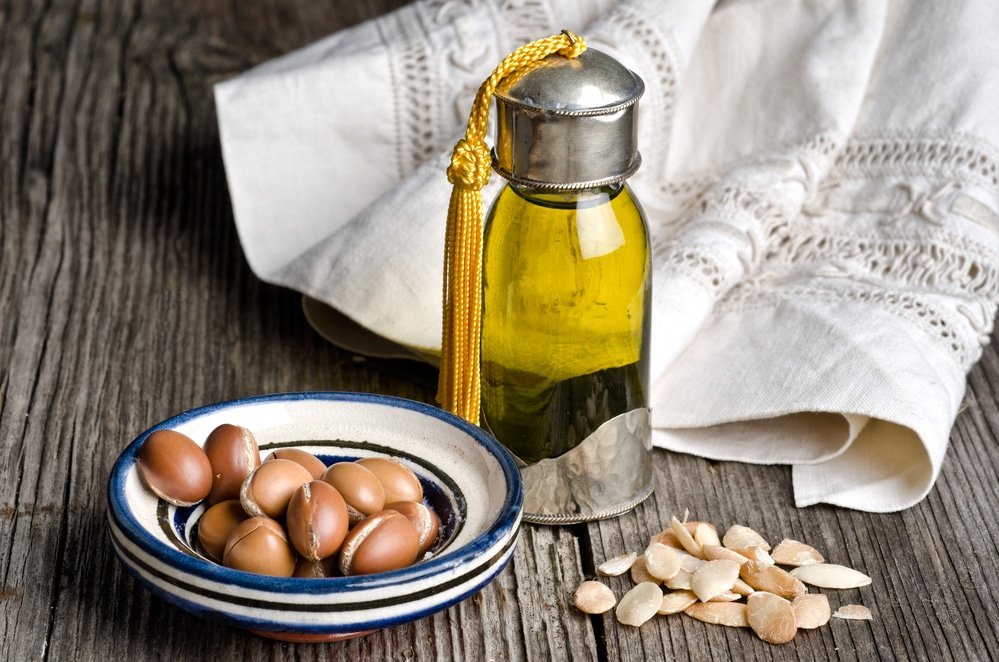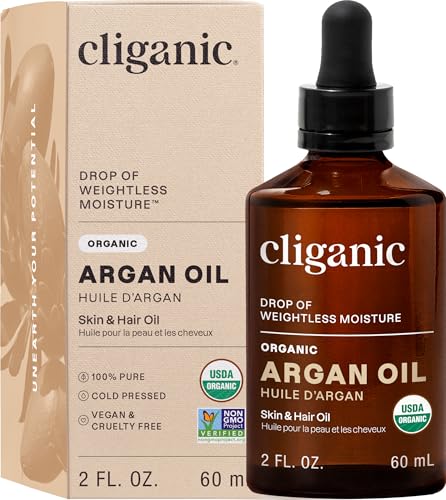Argan oil, often referred to as “liquid gold,” is a natural oil extracted from the kernels of the argan tree (Argania spinosa), which is native to Morocco. Traditionally used in Moroccan culture for cooking, skincare, and hair care, argan oil has gained worldwide popularity for its nourishing and moisturizing properties.
In recent years, it has become a go-to solution for hair health, especially for those looking to improve hair growth, reduce hair fall, and restore shine and strength to their locks. This article explores the benefits of argan oil for hair growth, how it works, and how to use it effectively.
What is Argan Oil?
Argan oil is derived from the nuts of the argan tree, which grows exclusively in Morocco. The extraction process involves drying the argan fruit, removing the nut, and then cold-pressing the kernels to obtain the oil. This traditional method helps retain the oil’s nutrients and bioactive compounds.
Nutritional Components Relevant to Hair Health:
- Vitamin E (Tocopherol): A powerful antioxidant that promotes scalp health and reduces oxidative stress, which can damage hair follicles.
- Essential Fatty Acids: Particularly oleic acid and linoleic acid, which help moisturize the hair and improve elasticity.
- Antioxidants: Protect hair from environmental damage like UV rays and pollution.
- Squalene: Enhances shine and provides natural hydration.
These components work together to improve hair strength, promote growth, and maintain a healthy scalp.
Benefits of Argan Oil for Hair

1. Moisturizes and Conditions Hair
Argan oil is an excellent natural conditioner due to its high content of essential fatty acids and vitamin E. It penetrates the hair shaft, locking in moisture and making the hair feel soft, silky, and manageable.
2. Reduces Hair Breakage and Split Ends
The fatty acids in argan oil help strengthen the hair shaft, reducing the likelihood of breakage and split ends. This protective barrier minimizes damage caused by heat styling, chemical treatments, and mechanical stress from brushing or combing.
3. Improves Scalp Health
Argan oil has anti-inflammatory and antioxidant properties that can improve scalp conditions such as dandruff, itchiness, and dryness. A healthy scalp is crucial for supporting strong, healthy hair growth.
4. Protects Hair from Environmental Damage
Exposure to UV rays, pollution, and harsh weather can damage hair over time. Argan oil forms a protective layer around the hair shaft, shielding it from these environmental stressors while maintaining shine and vitality.



How Argan Oil Promotes Hair Growth
1. Nourishes Hair Follicles
Argan oil is rich in nutrients that nourish the hair follicles, including vitamin E, omega-3, and omega-9 fatty acids. This nourishment strengthens the roots and encourages the growth of thicker, healthier hair.
2. Enhances Hair Elasticity
The moisturizing properties of argan oil improve hair’s elasticity, making it less prone to breakage. Strong, elastic hair grows longer over time because it’s less likely to snap or split.
3. Prevents Hair Loss
By improving scalp health and reducing inflammation, argan oil can help prevent certain types of hair loss, particularly those linked to dryness, irritation, or poor blood circulation to the scalp.
How to Use Argan Oil for Hair Growth
1. Direct Application to the Scalp
- Warm a few drops of argan oil between your palms.
- Gently massage the oil into your scalp using circular motions to improve blood circulation.
- Leave it on for at least 30 minutes or overnight for deep nourishment.
- Wash with a mild shampoo to remove excess oil.
2. As a Leave-In Conditioner
- Apply a small amount of argan oil to damp hair, focusing on the mid-lengths and ends.
- This helps to lock in moisture, reduce frizz, and add shine without making the hair greasy.
3. Incorporation into Hair Masks
- Mix argan oil with natural ingredients like honey, yogurt, or avocado to create a nourishing hair mask.
- Apply to the hair and scalp, leave on for 20–30 minutes, then rinse thoroughly.
4. Frequency of Use
- For best results, use argan oil 2–3 times per week.
- It can also be used daily in small amounts as a serum to tame frizz and add shine.
Potential Side Effects and Precautions
While argan oil is generally safe for most people, there are a few precautions to consider.
Possible Side Effects:
- Allergic Reactions: Some individuals may be allergic to argan oil, leading to itching, redness, or rash.
- Greasy Hair: Applying too much oil can make the hair look oily or weighed down.
Guidelines for Safe Use:
- Always perform a patch test before using argan oil extensively to rule out any allergic reactions.
- Use only a small amount to avoid greasiness, especially if you have fine or thin hair.
- Consult a dermatologist if you have a sensitive scalp or underlying skin conditions.
Conclusion
Argan oil is a natural, nutrient-rich oil that offers numerous benefits for hair health and growth. Its powerful combination of vitamins, antioxidants, and essential fatty acids helps:
- ✔ Nourish hair follicles and promote growth
- ✔ Moisturize and improve hair elasticity
- ✔ Reduce breakage and split ends
- ✔ Protect against environmental damage
With consistent use, argan oil can transform your hair, making it softer, shinier, and healthier. Whether used as a scalp treatment, leave-in conditioner, or part of a hair mask, argan oil is a versatile addition to any hair care routine.
For best results, incorporate argan oil into your routine 2–3 times a week, and don’t forget to do a patch test if you’re using it for the first time. Healthy, vibrant hair is just a few drops away!



Join the 7‑Day “Better Gut” Plan
Pop in your email and we’ll send Lesson 1 + the printable list.







